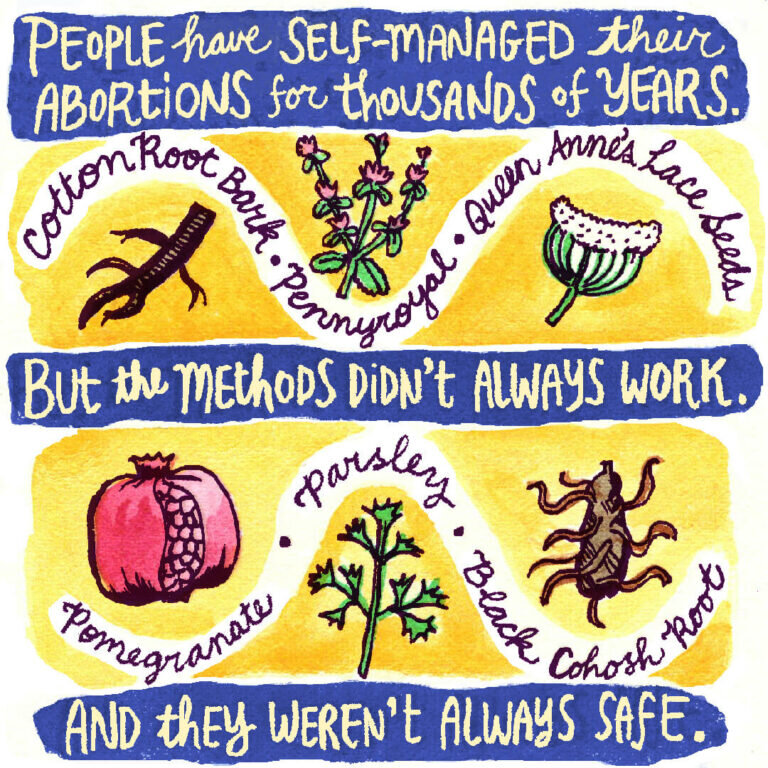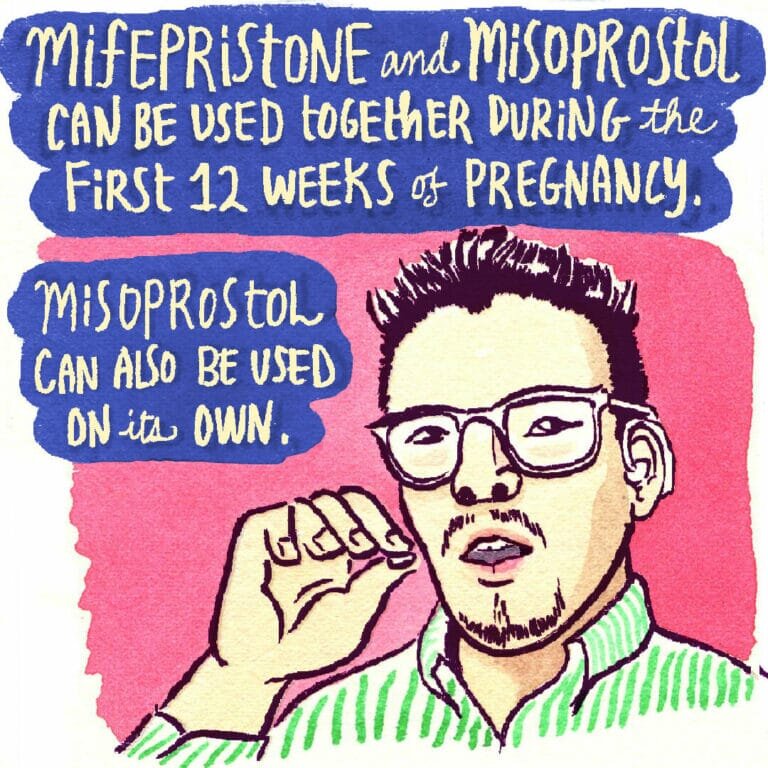
Abortion Explained!
Self-Managed Abortion
Are You A Journalist Covering Someone Accused of Self-Managing an Abortion? Read Our Guide!
Abortions have been around as long as people could become pregnant. For centuries people did abortions on their own using herbs, teas, or other methods passed down from families and cultural traditions over generations. Some of those traditions are still used today.
Today, many people around the world induce their own abortions using medications, mifepristone and misoprostol. Approximately 2.2% of people who’ve had abortions have tried to self-manage an abortion before, though many go unreported. People choose to self-manage their abortions for many different reasons. Sometimes it’s because they want to be able to have their abortions in the comfort of their own homes surrounded by loved ones or because they want to use traditional methods. Sometimes it’s because they are unable to access clinic-based care due to cost or immigration status, for example, while others have a complicated relationship with medical systems due to racism or transphobia, and others may want to keep their abortion a secret from someone in their life.
There are a lot of reasons. All are valid.
Self-managed abortion today looks different than it did in the past. Because of medical advancements and more information on how to safely self-manage an abortion, it’s not the unsafe back-alley and coat hanger procedure experiences of our ancestors.
A self-managed abortion (SMA) is the process of inducing an abortion on one’s own, usually without medical supervision or guidance from a doctor.










Attempting to self-manage an abortion using medication is generally safe, but can be legally risky. People who have been accused of self-managing their abortions or experienced pregnancy loss, like miscarriage and stillbirth, have been prosecuted. Self-managing an abortion can be a safe and effective method to end a pregnancy, but criminalizing it only seeks to punish people and makes it harder for those who are already disproportionately impacted by barriers to abortion care—particularly people of color, undocumented immigrants, formerly incarcerated people, and trans and gender non-conforming people.
Even though states may criminalize the act of self-managing an abortion, legally, people are under no obligation to disclose their abortion to medical providers, and medical providers are not required to report self-managed abortions disclosed to them. Since the medications used to self-manage an abortion metabolize quickly, they cannot be detected in the body through medical testing. Still, people who self-manage an abortion may fear seeking emergency care, especially in areas with religious hospitals.
It is important that people who are considering self-managing their abortions consider the risks and have resources in the event something doesn’t go as planned.
The Repro Legal Helpline
(844) 868-2812
offers legal information to anyone who is concerned about the legal risks of self-managing an abortion.
M+A Hotline
(833) 246-2632
provides medical advice over text or phone from volunteer doctors for people who are experiencing a miscarriage or self-managing an abortion.
Pills & Information
Women Help Women, Self-Manged Abortion Safe and Supported, Plan C, the Euki app, Women on Web, and Aid Access offer more resources on self-managing an abortion.
Abortion on Our Own Terms
a website with a list of resources and materials for people who want to learn more about self-managed abortion.
“It took two weeks for the pills to arrive. I’m pretty sure the mail was backed up because of COVID-19, so after a week, I asked them to send another package. While I was waiting for it, I was just thinking, I’m only getting further and further along. It was so stressful. The people who sent them buy them outside of the U.S. and send them to women who need them.”
— We Testify storyteller Esmarie in Cosmopolitan



